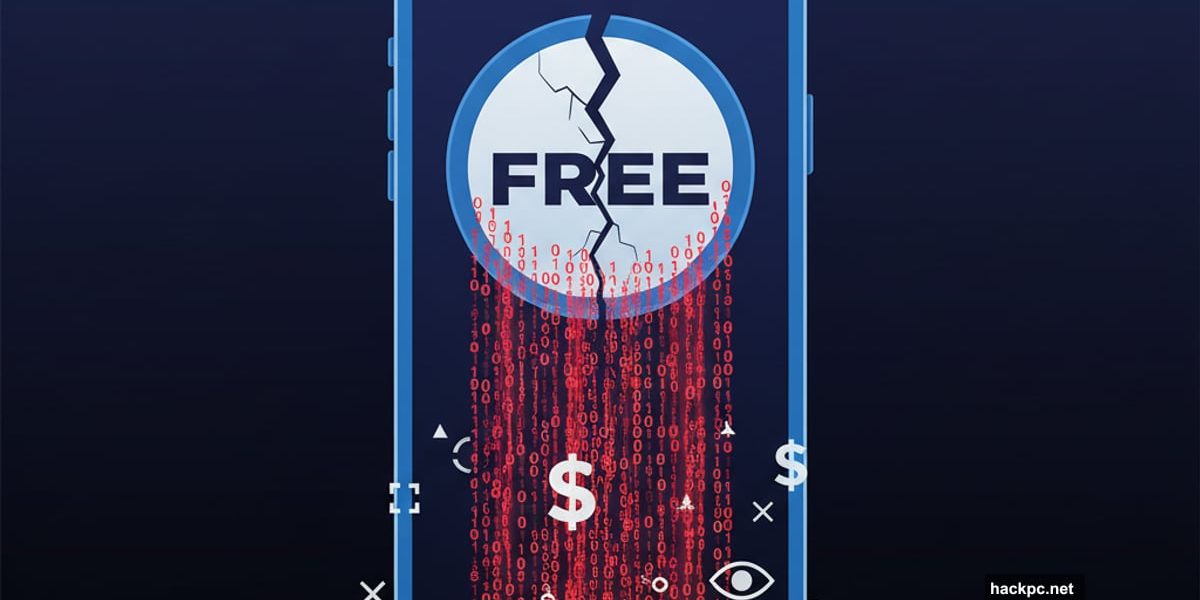
That “free” VPN app you just downloaded? It’s probably making money off you right now.
Free sounds great. Who doesn’t want privacy protection without paying? But here’s the catch: VPN services cost real money to operate. Servers, bandwidth, maintenance—it all adds up. So when a company offers a VPN for free, they’re getting paid somehow. Usually by selling your data or stuffing your screen with ads.
Nearly two-thirds of free VPNs actively put your data at risk, according to recent research. One popular free Chrome VPN was caught taking screenshots of user activity earlier this year. Google even issued warnings about rising VPN scams. That’s not protection—that’s a privacy nightmare.
Your Browsing Data Becomes Their Product
Most free VPNs generate revenue by collecting and selling your browsing history to third parties. Think about that for a second. You installed a VPN to protect your privacy. Instead, it’s actively tracking every site you visit and selling that information to advertisers.
This defeats the entire purpose of using a VPN. Plus, it opens you up to targeted ads, privacy breaches, and potentially identity theft. That free app just became very expensive.
Weak Encryption Leaves You Vulnerable
Strong encryption is the whole point of a VPN. It’s what keeps your data secure from hackers, ISPs, and prying eyes. But many free VPNs use outdated protocols like PPTP that security experts abandoned years ago.
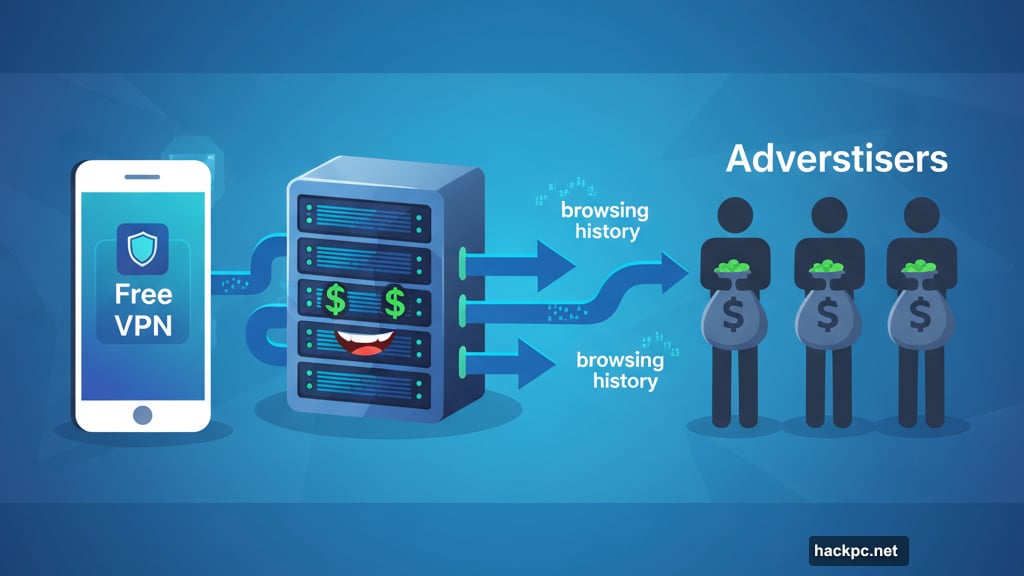
These weak protocols leave you vulnerable to cyber threats and data theft. So you’re not actually protected—you just think you are. Meanwhile, your internet traffic flows through compromised encryption that anyone with basic skills can crack.
Data Caps Kill Your Connection
Free VPNs typically impose strict data limits. Stream a few high-quality videos or download some files, and boom—you’ve hit your monthly cap. Then you’re stuck waiting for the cycle to reset, usually in 30 days.
For heavy users who stream content, game online, or work remotely, these caps are basically useless. You’ll burn through your allotment in days, leaving you unprotected for the rest of the month.
Overcrowded Servers Crush Performance
Free VPN users flock to limited server networks like moths to a flame. The result? Overcrowded servers that crawl at dial-up speeds. High latency, constant buffering, and connection drops become your new normal.
Yes, all VPNs slow your connection somewhat. But premium services use fast protocols and maintain extensive server networks to minimize the impact. Free VPNs? Not so much. You’ll notice the slowdown immediately, especially when streaming or gaming.
Limited Server Options Restrict Access
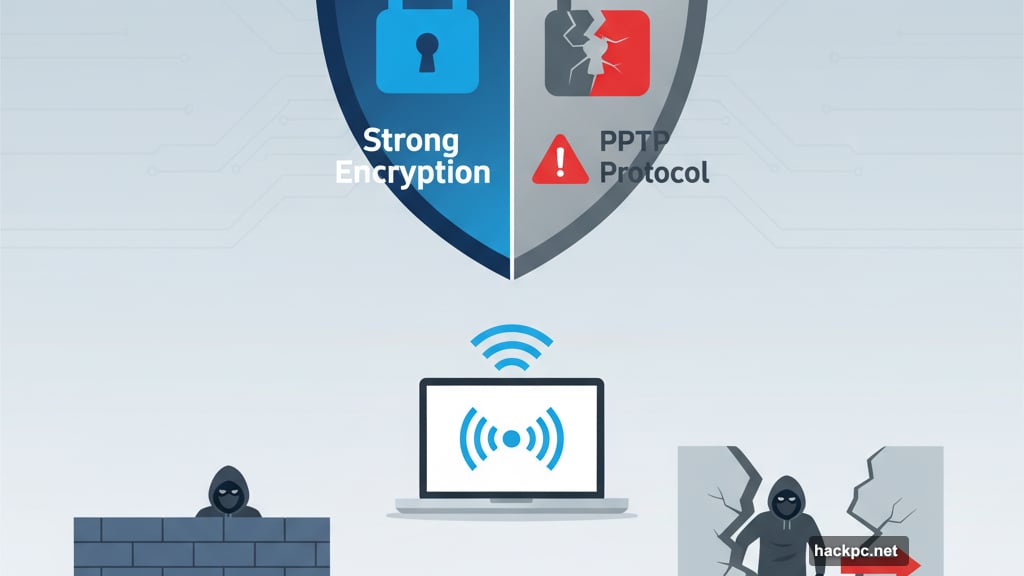
Having fewer servers isn’t just about speed—it limits your ability to access geo-restricted content. Want to watch shows only available in other countries? Good luck finding a free VPN with servers where you need them.
Plus, limited server options mean you’re stuck routing through whatever’s available. That could be servers in countries with questionable data privacy laws, exposing your information to foreign governments.
Ads Bombard Your Screen
Since they can’t charge you money, free VPNs monetize through advertisements. Intrusive pop-ups and banner ads will interrupt your browsing constantly. It’s annoying, distracting, and slows down your already compromised connection.
These ads aren’t just irritating—they’re tracking you too. Ad networks collect data about your behavior to target you more effectively. So you’re paying for “free” VPN protection with your attention and privacy.
Malware Risks Hide in Sketchy Apps
Some lesser-known free VPNs hide malware directly in their software. Download the wrong app, and you’ve just installed malicious code on your device. This exposes you to hacking, data theft, and complete system compromise.
The risk isn’t theoretical. Security researchers regularly discover malware-laden VPN apps in official app stores. Once installed, these apps can steal passwords, financial information, and personal data while pretending to protect you.
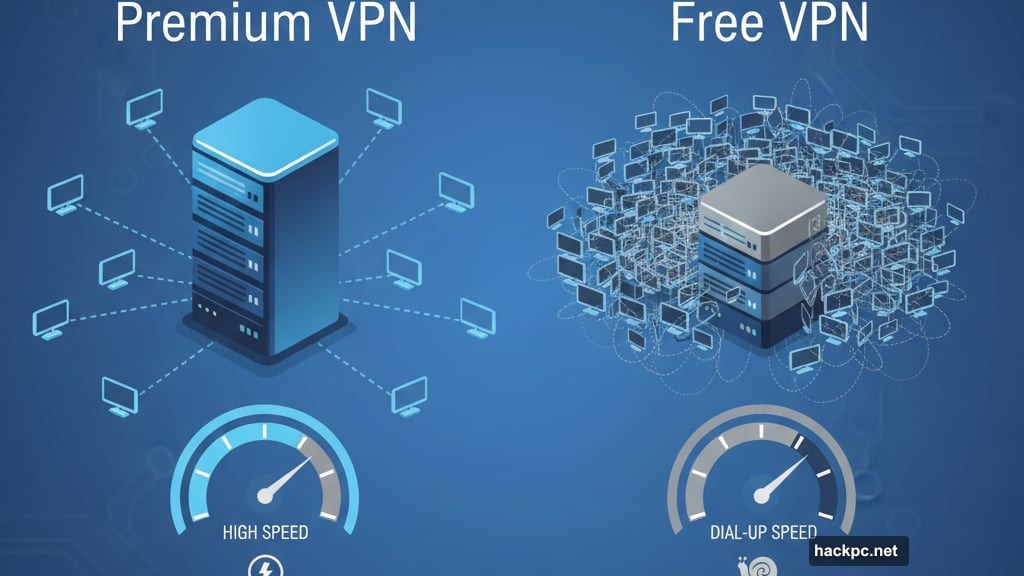
One Free Option Actually Works
ProtonVPN is the exception that proves the rule. Developed by the team behind ProtonMail, it offers a genuinely free plan without data caps, speed limits, or advertisements.
The free version has limitations—fewer servers and single device support—but it provides strong encryption and doesn’t sell your data. It’s the only free VPN CNET endorses because it avoids all the problems plaguing other free services.
For $5 monthly, ProtonVPN Plus removes those limitations. You get faster speeds, access to servers in more countries, and support for up to 10 devices simultaneously. That’s reasonable pricing for legitimate privacy protection.
The Real Cost of Free
Free VPNs aren’t protecting your privacy—they’re exploiting it. Your browsing data, personal information, and online behavior become commodities sold to the highest bidder. That’s a steep price for something marketed as “free.”
Meanwhile, you’re stuck with weak encryption, slow speeds, intrusive ads, and potential malware infections. The money you “saved” costs you in compromised security and wasted time.
If you need VPN protection, either use ProtonVPN’s free tier or invest in a reputable paid service like ExpressVPN or NordVPN. Your privacy is worth the few dollars monthly. Because “free” VPNs cost more than you think—they just charge in ways you don’t immediately see.
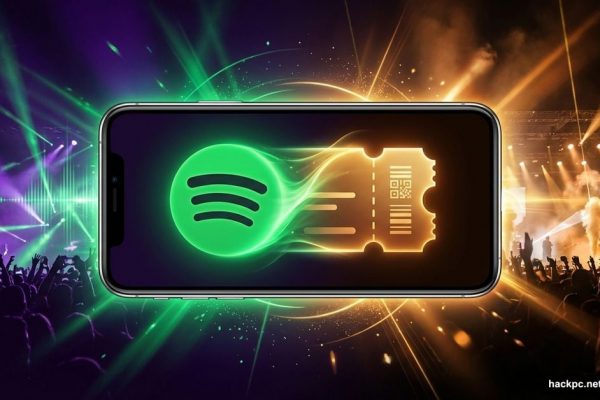
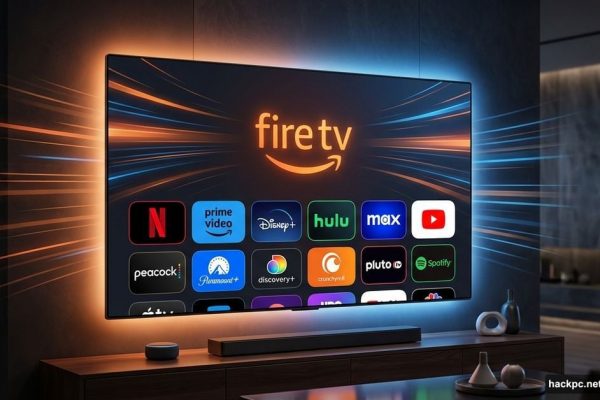
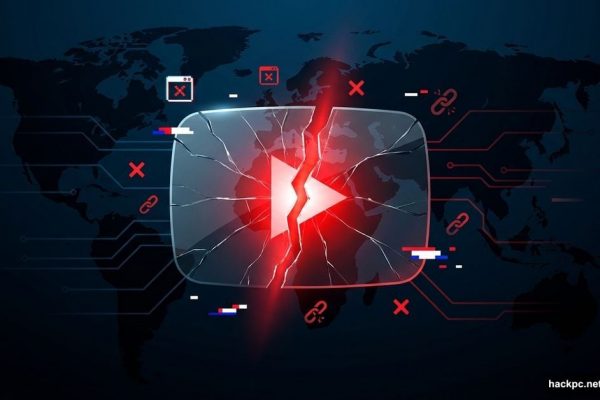
Comments (0)